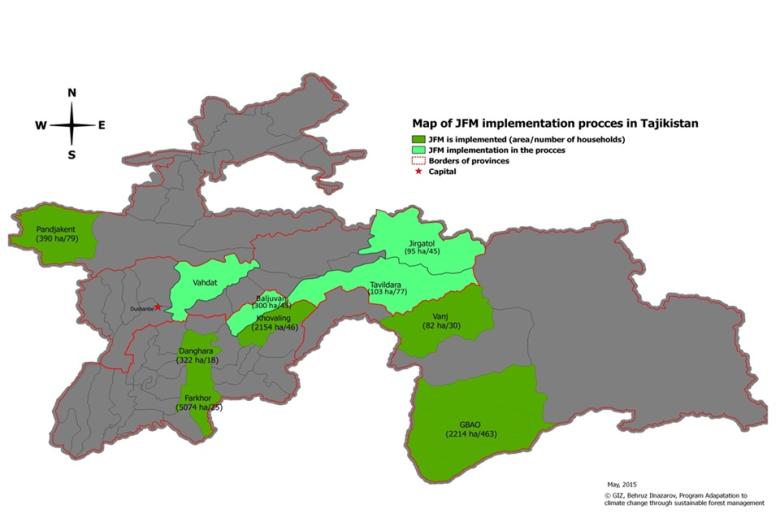In Tajikistan, forests have suffered from deforestation due to an energy shortage after the collapse of the Soviet Union. Today a weak forest governance system and imprecise land use rights lead to mismanagement and consequently a slow reforestation process. A weak financial infrastructure and a steady inflow of remittances have entailed an increase in livestock which has resulted in land use conflicts, enforced by few and partially contradicting regulations. A changing climate, increasing the frequency and intensity of disasters intensifies the pressure on communities and their surrounding ecosystems. Consequently, climate change adaptation, sustainable pasture management, and clear land use rights must form an integral part of forest management. This solution forms a guideline for integrative forest management rooted in the Joint Forest Management (JFM) approach, accounting for adaptation to climate change, sustainable pasture management, biodiversity preservation, and gender equity.


